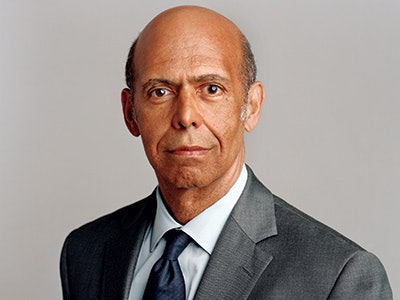On Friday, the U.S. House of Representatives passed the Health and Economic Recovery Omnibus Emergency Solutions (HEROES) Act, a $3 trillion coronavirus relief package which would provide another round of stimulus checks among numerous other provisions, reported CNBC.
A previous round of stimulus suspended interest and payments for most individuals with federal student loans through Sept. 30, 2020. The HEROES Act extends that suspension through September 2021, expanding the relief to all federal student loans, including Federal Perkins Loans and some loans issued through the Federal Family Education Loan and Health Education Assistance Loan programs. According to CNBC, the HEROES Act would also cancel up to $10,000 for some federal and private loan holders.
The passage of the HEROES Act was hailed by numerous higher ed stakeholders, including Dr. Michael L. Lomax, president and CEO of the United Negro College Fund (UNCF).
 Dr. Michael L. Lomax
Dr. Michael L. Lomax“The passage of the HEROES Act is Congress’ attempt at a fourth stimulus package for our economy and is largely a win for our nation’s HBCUs and their students,” said Lomax in a statement. “Not only does this bill provide over $1.7 billion for HBCUs and other MSIs, it strengthens the Coronavirus Aid, Relief, and Economic Security Act by creating even more flexibility and access to resources for our HBCUs. Now that the House has passed the HEROES Act, it is up to the Senate to build on this foundation. We will continue to work with Congress to perfect the HEROES Act and ensure that the overall package that is signed into law is the absolute best deal for our nation’s HBCUs and their students.”
UNCF and a coalition of advocates for historically Black and minority-serving institutions, including the Thurgood Marshall College Fund (TMCF), OCA-Asian Pacific American Advocates, the Hispanic Association of Colleges & Universities (HACU), the National Association For Equal Opportunity in Higher Education (NAFEO) and the American Indian Higher Education Consortium (AIHEC) released a letter in April outlining their priorities when it comes to congressional action to respond to the coronavirus pandemic.
UNCF highlighted the following provision of the HEROES Act benefiting HBCUs and their students:
- $1,708,000,000 in funding for HBCUs and other Minority-Serving Institutions (MSIs);
- A variation of the funding distribution formula, as proposed by the larger HBCU community, for HBCUs;
- The ability of the secretary of education to create flexibilities around the allowable uses for institutions participating in the Minority Science Engineering and Improvement Program to use their grant award amounts to respond to the needs presented by COVID-19;
- The removal of the $62 million cap in the HBCU Capital Financing Loan Program, which frees up additional resources for HBCUs to respond adequately to COVID-19;
- The reinstatement of the special rule relating to the allotment limitations in Part B of Title III of the Higher Education Act of 1965 (HEA);
- The ability of non-profit organizations with greater than 500 employees to participate in the Paycheck Protection Program; and
- The ability of institutions of higher education to benefit from the Main Street Lending program.
According to CNBC, the HEROES Act now heads to the Senate for consideration, “where it is unlikely to gain much traction among the Republican-controlled chamber.” CNBC reported that Senate Majority Leader Mitch McConnell (R-KY) “called the bill ‘an unserious product from an unserious majority.’ President Donald Trump this week said the bill is ‘DOA.’”
However, according to CNBC, two White House officials said Thursday “that the White House would likely support another round of economic impact payments.”


















